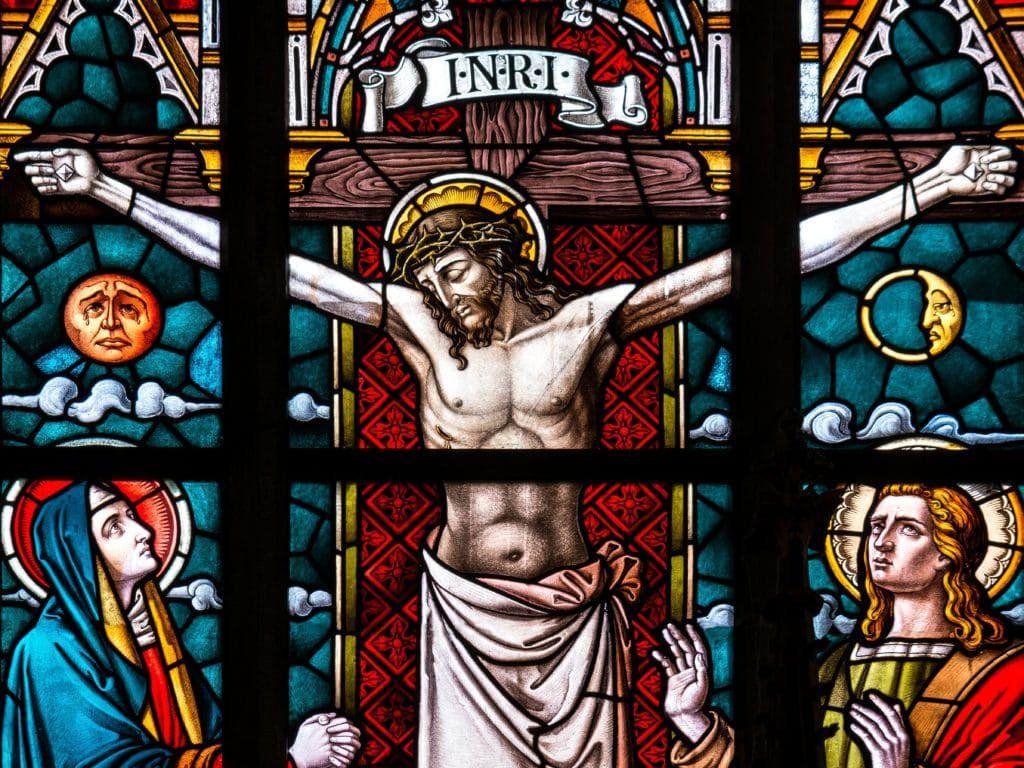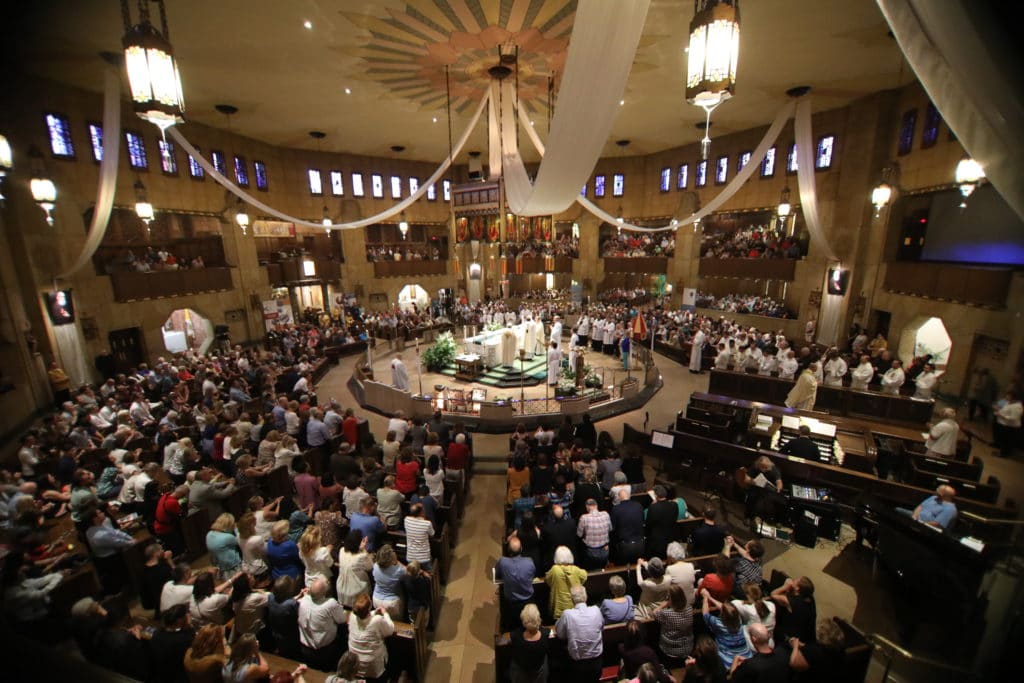St. Leo the Great, pope from 440 to 461, is renowned for upholding the full divinity and the full humanity of Christ, the Incarnate Word of God. The homilies of Leo, preached on the major feasts of the liturgical year, are a treasure for God’s people.
The following selection is taken from two related homilies Leo gave during Holy Week in the year 441. In these homilies, Leo unveils the full narrative of our redemption in Christ, beginning with Adam and our Fall and culminating with the coming of Jesus and his redeeming work as the Lamb of God.
Leo underlines how the one Christ — both fully divine and fully human — uniquely fulfills the role of redeemer, overcoming sin, the power of death and the slavery of the devil. But Leo does not stop with our freedom from these slaveries. He shows that our destiny is to be joined with Christ and transformed into his image.
In a marvelous line, Leo says we are called to be re-formed into the image of Christ who conformed himself to our human condition in order to heal our deformed nature. God lowered and humbled himself — in the incarnation, passion, death and resurrection of Christ — so we could be raised up to communion with God.
This is the great glory of our destiny in Christ through the Spirit.
But we have a part to play. Leo calls us to embrace this work of redemption by imitating Christ in his humility and patience and setting our minds on heavenly things.
Leo the Great’s Homilies on the Passion of Christ
Sermons 52 and 53
Today’s passage from the Gospel has unfolded for us, dearly beloved, the mystery of our Lord’s Passion. Our Lord Jesus the Son of God undertook it for the salvation of the human race. According to his promise, “he has drawn all things to himself in being lifted up.” (Jn 12:32)
After that first and universal fall of human transgression — from which “through one man, sin entered into this world, and through sin death, and death has thereby spread to all people, in that all have sinned” (Rom 5:12) — no one could escape the terrible dominion of the devil nor the chains of harsh captivity. Neither reconciliation leading to pardon nor a return to life would be accessible to anyone had not God the Son (co-eternal with and co-equal to God the Father) condescended to become the son of man, coming “to seek and to save what was lost.” (Lk 19:10) As death came through Adam, so through our Lord Jesus Christ came resurrection of the dead. (1 Cor 15:21)
This whole mystery (which both humanity and divinity have completed together) was a dispensation of mercy and an act of love. We were held bound with such chains that only by this power could we be released. Divine humility, therefore, becomes our advancement. We are redeemed “by so great a price” (1 Cor 6:20); we are healed at such great cost. What return would there be from wickedness to justice, from misery to blessedness, unless the Just One leaned down to the wicked and the Blessed One bent himself down to the miserable.
We must not, then, be ashamed of the Cross, dearly beloved, for it comes from the strength of divine wisdom, not from a state of sin. Our Lord Jesus truly suffered with our weakness and truly died. Yet he did not so deprive himself of his own glory that, in the midst of the insults of his Passion, he exercised nothing of his divine operations.
As a result, dearly beloved, our Lord Jesus Christ crucified is not a “stumbling block” or “foolishness” to us, but “the power of God and the wisdom of God.” (1 Cor 1:23-24) We, I say, are the spiritual offspring of Abraham, not born as children of slavery but reborn into the family of liberty. (Gal 4:31) For us … Christ the true and spotless Lamb was sacrificed. (1 Cor 5:7)
Let us, then, embrace the wonderful mystery of the saving Passover and be re-formed into the image of the one who conformed himself to our deformity. Let us be raised to the one who made the dust of our lowliness into the body of his glory. That we might deserve to be sharers in his resurrection, let us adapt ourselves to his humility and patience in all things. We are undertaking the service of a great name, the discipline of a great profession.
Followers of Christ may not stray from the King’s highway. We are not to be preoccupied with temporal affairs as we head for the eternal. Because we have been redeemed by the precious blood of Christ, “let us glorify and carry God in our body” (1 Cor 6:20) so that we may deserve to come to those things which have been prepared for the faithful through Jesus Christ our Lord.


